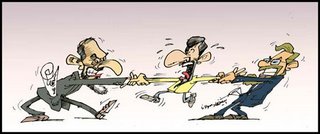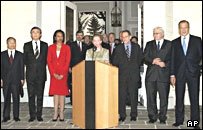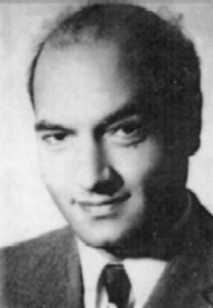
It is his anniversary, the old guards of revolution are talking about him, his life and his ideas. What makes him so important?
Many like to think of Third World as a battleground in the Cold War, but much more was going on. It was not just a conflict of interest between Marxist camp and the West, for ordinary people it was the conflict of their present and their past, the so called modernity and their traditions. No where else in the developing world was this conflict of ideas felt more strongly and fought more passionately than in Iran. Here Dr. Ali Shariati son of an enlightened man from Khorasan in the north east of Iran becomes important.
Iran in 1960’s was a country ideologically divided, while Shah relied on the tradition of monarchy to justify his unchallenged rule, he also wanted to be seen as a figure of enlightenment and the architect of “Grand Civilization”. However His court and supporters were presented as the symbols of a corrupt capitalism and puppets of Imperialism in Iran by the opposition. His extravagance did not help either. While Iran’s population continued to remain a very traditional one, Iranian monarch and royal family members filled the media with stories of their wild parties and sex lives. A traditionally Iranian Muslim could not have less in common with the House of Pahlavi.
While Pahlavi represented Capitalism in Iran, the intellectuals represented the other side of the coin. They were uniformly left, in most cases adherent students of Marx and Lenin. They talked of poverty, fighting imperialism and establishing justice in the society. However the two sides had one thing in common: they both were secular.
The average Iranian was not. The peasants and the workers, the immigrant population to urban areas, the storekeepers; the merchants of Bazaar were extremely traditional. And they believed their traditions originated by Islam. For them Islam was the refuge and the comfort. And in 1960’s Islam was under siege in Iran, both by an arrogant court and its arrogant opposition.
For thousands of Iranians and students the question was that if a co-existence of Islam and modernity was possible. Dr. Shariati was their answer.
The profile of the man was perfect. Ali Shariati was son of a preacher figure in Mazinan, a suburb of Mashhad, where the eighth Imam of Shiite is resting in his magnificent shrine. He studied in teachers’ college and went to study sociology in Sorbonne. His life was an example of hard work and scholarship. He was imprisoned a few times and was banned from teaching in universities upon his return to Iran.
But he found a school of his own in Houssein-e-Ershad. There he talked of Islam and Islamic figures in a modern language. He talked of just rule of Ali, the 4th Caliph and the first Imam of Shiites, he talked of a just Islamic ruler who would oppose corrupt capitalization. An elegant speaker and writer he was welcome and embraced by thousands. He also attacked the traditional clergies and their role in supporting monarchy and drew a line between them and the real Islamic teachings of Prophet Mohammad. Here he crossed a red tape. A battle was started between what is known as Islamic Left and Conservative Islam in Iran. The combat has continued until today.
For impoverished masses he was an assurance that Islam had the solutions, that pure Islam could create a better society. His mastery of communicating leftist political ideas in traditional Islamic vocabulary made his message so popular that he was sent to exile to London, where died in the dawn of revolution in 1977 under suspicious circumstances. Many attributed his death to SAVAK, Shah’s security force.
Some of his books were banned after revolution by the very same clergies, whom he had attacked in his writings. But he remained a figurehead anyway. If his conservative opponents were in charge, so were his leftist followers. His students wrote and published several of his speeches and his books continued to be republished. For many teenagers reading his writings in dusty family libraries was the first act of introduction into a developing controversy between modernity and traditions.
Today Shariati’s influence is much limited than three decades ago. The experience of the first decade of revolution made many skeptical of his leftist ideas and his political interpretation of Islam. As Iran started the process of reform, the generation of revolution had already outgrown him. Today the time has come to look at his ideas from a politically unbiased point of view. No matter one’s opinion of his ideas, one thing remains undoubted: his was a life of a great teacher, his place in history is secure.


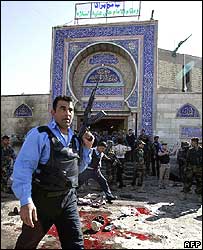
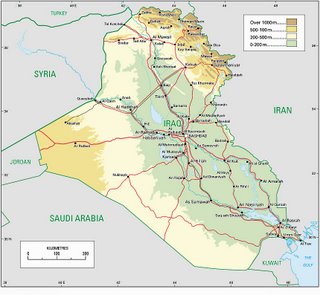
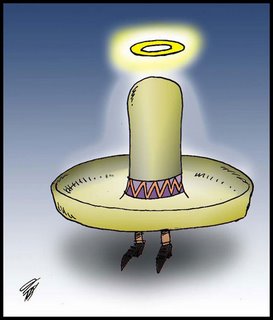 It is not news to anyone who follows the World Cup, Iran lost to Mexico. After keeping a 1 to 1 score for 75 minutes Iran received two goals in less than 5 minutes. A victory was lost, when almost even the most pessimistic of the fans had become certain of its possibility. The writer is not a big football (soccer) fan; however he does follow the World Cup. That is said, he does not claim to have any professional background to have a reliable opinion. However it is interesting to study the reactions of journalists, media and different websites.
It is not news to anyone who follows the World Cup, Iran lost to Mexico. After keeping a 1 to 1 score for 75 minutes Iran received two goals in less than 5 minutes. A victory was lost, when almost even the most pessimistic of the fans had become certain of its possibility. The writer is not a big football (soccer) fan; however he does follow the World Cup. That is said, he does not claim to have any professional background to have a reliable opinion. However it is interesting to study the reactions of journalists, media and different websites.